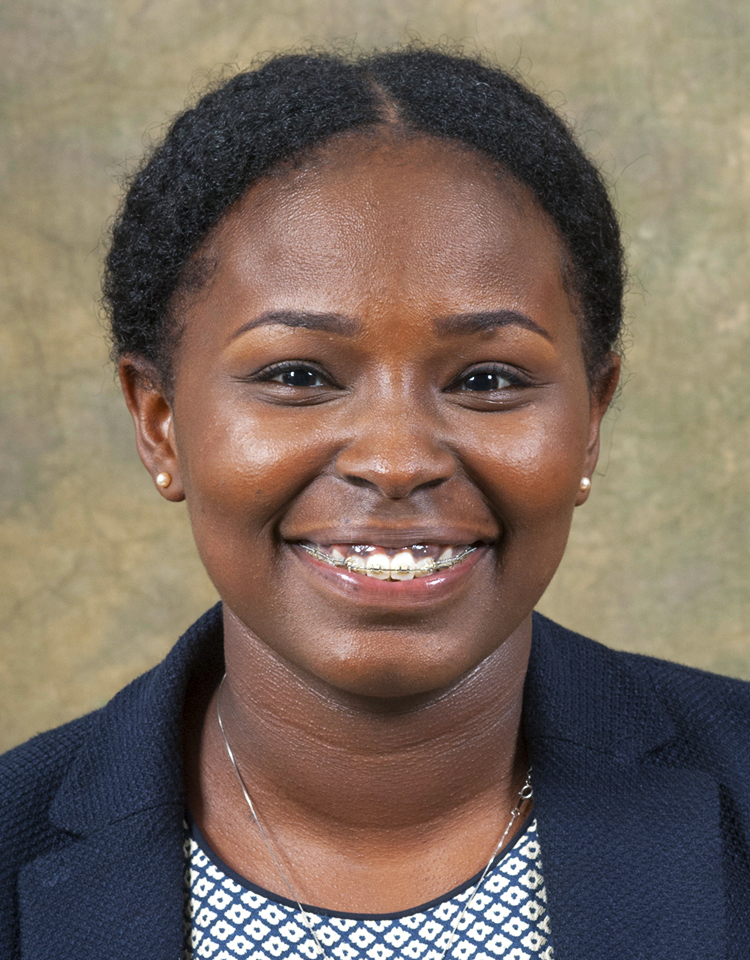The National Resident Matching Program has elected Wayne State University School of Medicine Class of 2021 student Ebony White-Manigault, M.P.H., to its Board of Directors for a two-year term to begin July 1.

She was one of five individuals elected at the NRMP’s May meeting. The 19-member board includes medical school deans, institutional officials, and clinical program directors, residents and fellows.
White-Manigault wanted to join the NRMP Board of Directors because it aligns with her academic and professional interests, and her future career goals to be a physician and medical education advocate. She heard about the opportunity from Diane Levine, M.D., professor and vice chair of Education for the Department of Internal Medicine.
“My journey in medical school has been rooted on a foundation of advocating for equity during transitions in medical school. Much of my interest in medical education involves understanding the important transition skills necessary for medical students, especially non-traditional and minority students, to succeed,” White-Manigault said. “This position is an ideal next step for my intellectual curiosity as it involves one of the most important transitions in your medical career: the transition to residency.”
During her second year of medical school, White-Manigault served as an elected delegate of the Association of American Medical Colleges’ Organization of Student Representatives, an advisory body that serves as a liaison between the national entity, student leadership and school administration.. She earned her undergraduate degree in biochemistry, natural science and biology at Saint Xavier University in Chicago, and a master’s of Public Health degree from the University of Michigan.
As a board member, she hopes to address the “extreme inflation” in residency applications submitted per student, she said.
“Although NRMP provides applicants with the tools to accurately assess their competitiveness, applicants are still reluctant to completely trust the process and are submitting upwards of fifty applications for a single spot in the Match,” she said. “The overwhelming volume has had a domino effect, causing programs to set firm cutoffs based on standardized metrics, such as STEP 1, which has a limited capacity to comprehensively capture an applicant’s competency. During my tenure on the NRMP Board of Directors, I hope to continue to ensure the student experience during the Match process is transparent, so students know and feel that they are entering a profession that places value on time, effort and an honest process. As a current medical student, I have a fresh perspective on the issues that current applicants are experiencing, and I am integrated into a large network of students and peers in the same position.”